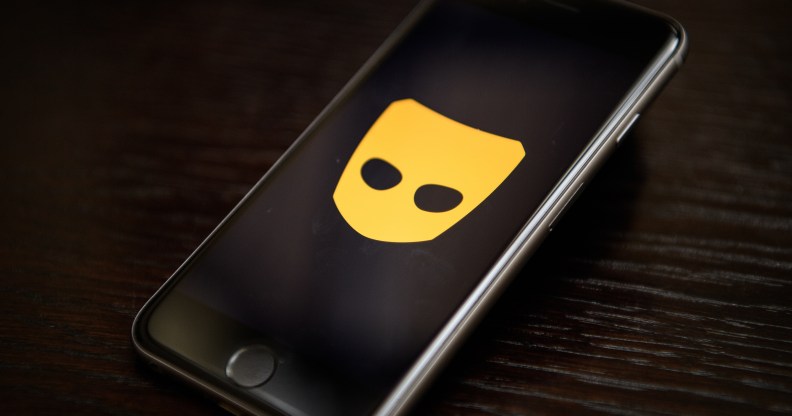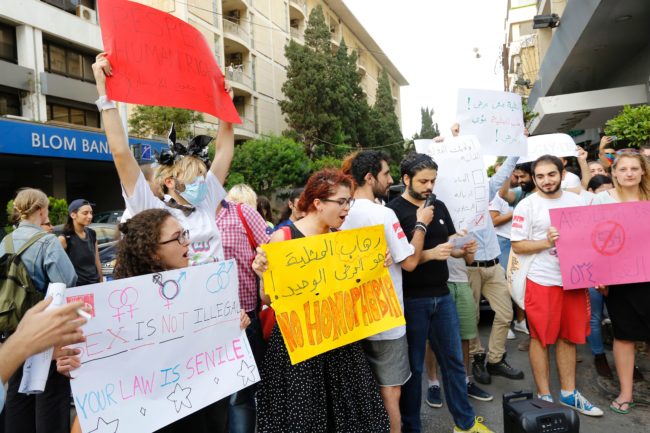Grindr banned in Lebanon amid anti-gay crackdown

Gay hook-up app Grindr was banned in Lebanon (Leon Neal/Getty)
Gay hook-up app Grindr was banned in Lebanon (Leon Neal/Getty)
Gay hook-up app Grindr has abruptly stopped working for users in Lebanon, sparking fears of a government ban.
LGBT+ organisations in the country raised the alarm after the app abruptly ceased to work over Lebanese mobile internet services on January 18.
Campaigners from internet freedom group SMEX contacted Lebanese internet service providers about the ban, and were told the action was a response to an order from Lebanon’s Ministry of Telecom.
Strangely, in a statement to Lebanon’s Daily Star newspaper, a spokesperson for the government ministry denied knowledge of any such order having been issued.
Lebanon Grindr ban ‘an attack on freedom’
Beirut Pride organisers hit out at the ban, warning users of the app about the issue.
“This ban is a new attack on the freedoms in Lebanon.”
—Beirut Pride
In a Facebook post, the group said: “For some people, the application doesn’t log in; for others, profiles and conversations do not load, unless accessed from a private wifi network.
“This ban is a new attack on the freedoms in Lebanon, and intends to shrink national cyber access on the grounds of our personal and intimate relationships.
“Banning an application on the public, shared network insinuates that the common space refuses to be a space for all. It confines people to the private network (home, cafés and work), thus pushing back Grindr, its users, and the representations of sexual orientation and gender identity back in the closet, behind closed doors.”
Beirut Pride added of the attempted censorship: “[It is] an approach of ‘exist but not too much’, ‘live your life away from us’, ‘be private about who you are and don’t impose yourself in the public sphere’.
“This highlights how such decisions are made against a backdrop of disinformation and miscommunication.
“This is why educating ourselves and fostering a proper communication with decision makers are paramount to address and deconstruct myths, lies and prejudice about LGBTIQ+ individuals.”
Lebanon has clamped down on LGBT+ community
Gay apps such as Grindr are a vital lifeline for men who have sex with men in the region.
It is technically illegal to be gay in Lebanon, though courts have ruled that archaic laws banning gay sex should not be used to target LGBT+ people.
Although the country’s LGBT+ community has historically had more freedom than in neighbouring countries, authorities in Lebanon have cracked down in the past year.
In May 2018, police arrested the organiser of the annual Beirut Pride festival, forcing the cancellation of 2018 Pride event.

Activists from of the Lebanese LGBT community take part in a protest outside the Hbeish police station in Beirut on May 15, 2016, calling for the abolition of article 534 of the Lebanese Penal code.(ANWAR AMRO/AFP/Getty)
Lebanese authorities also raided an LGBT+ conference in October.
The NEDWA conference, organised by the Arab Foundation for Freedoms and Equality (AFE), had taken place annually since 2013, with participants from across the Middle East in attendance.
However, the 2018 event was scrapped as police detained AFE executive director Georges Azzi, ordering him to cancel the conference and cease activities related to it.
Update, January 23. A spokesperson for Grindr has told PinkNews the app is once again accessible. in the region
The spokesperson said: “Last week Grindr users in Lebanon were unable to access their accounts.
“While we have confirmed it was not a technical problem on our end, we do not have further information on what caused the issue and are continuing to investigate.
“We can confirm that users are now able to successfully login to their accounts.”

